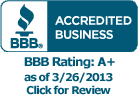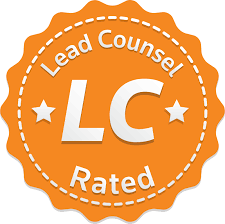Repossession
The lawyers
at Bergman & Yiangou
have all the experience needed to help you with the threat of repossession. Repossession occurs when a creditor takes back property that was used as collateral on a loan. Creditors typically have the right to repossession without the involvement of any courts as stated in a contract signed between a buyer and seller. Repossession can occur with any property in which the contract allows. This can include, but is not limited to, vehicles, jewelry, and computers. Once property is repossessed, a creditor can then sell the property at auction. Repossession can be extremely frustrating and can occur at the most inopportune times. Filing for Chapter 13 bankruptcy might be your best financial option.
Chapter 13 Bankruptcy and Repossession
If you wish to retain your vehicle, filing
Chapter 13 bankruptcy will stop the harassment and allow you to avoid repossession and sale of your property. It will allow you to retain your property, even if you are delinquent on payments. Once a Chapter 13 bankruptcy case is filed, you are protected by the bankruptcy code’s automatic stay provision. This stay prevents your creditors from taking any further action against you, including the repossession of your car or other property.
As long as your vehicle has not been sold, the bankruptcy filing will also prevent the sale of your vehicle at auction, even if the car has already been repossessed and a sale date has been determined. Upon the filing of your Chapter 13 bankruptcy case, Bergman & Yiangou will immediately notify your creditor of the filing and that the stay is in effect. We will then forward proper documentation of the filing and proof of insurance to the lien holder or creditor, which will stop the sale of your vehicle. Finally, we will work with your creditor to determine the location of the vehicle and proper procedure for the quick return of your property. You will then be able to pick up your car from the repossession lot.
Our Columbus bankruptcy attorneys will develop a Chapter 13 plan for you, which will propose to pay off the remaining balance owed on the vehicle loan at a reduced interest rate over the course of three to five years, based on your applicable commitment period and budget. Depending on when your vehicle was purchased, the amount owed on your vehicle can be reduced.
Chapter 7 Bankruptcy and Repossession
If you are not concerned with retaining the property, you will still be responsible for the deficiency balance arising from the sale of the property. A creditor can sue you in your local court, take a judgment, and attempt to garnish your wages and/or bank accounts. However, you may be able to prevent these actions and discharge your responsibility for this debt through a
Chapter 7 bankruptcy. In most instances, the deficiency balance can be treated as an unsecured claim, discharged upon completion of your Chapter 7 bankruptcy case, and you will be relieved of your responsibility for this debt.
The Bankruptcy attorneys at Bergman & Yiangou are here to discuss alternative repossession options and solutions for you. Call today for a free initial consultation with one of our knowledgeable Columbus bankruptcy attorneys.




